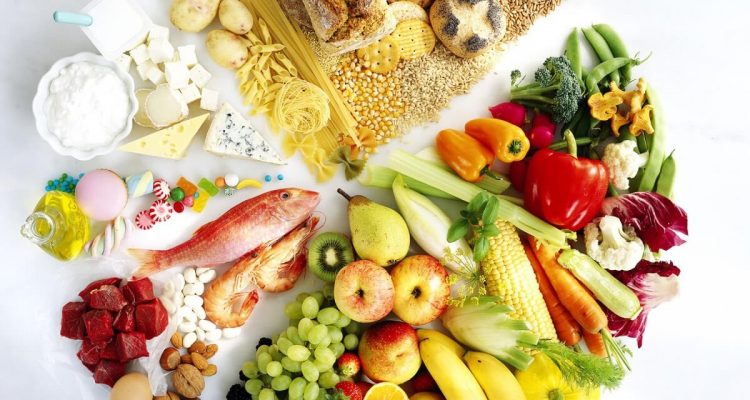
Nine foods that the longest-living people in the world eat every day
0 < p>Many eat incorrectly and often prefer semi-finished products to fresh products. However, nutrition is the key to a long life, the author of the article notes. She says that every day long-lived people around the world eat. Among the products you can find potatoes and garlic, which can be found in every home.
These are the most popular products in the regions with the most people over 100 years old.
Let's face it: here in the United States, we we eat far from the healthiest food. In fact, the standard American diet, which is high in processed foods, added sugar, and saturated fat, is seriously damaging to our health.
Thank God, there are many places in the world from which we can take an example. Yes, the “blue zones” are five regions of the world with the highest concentration of people over 100 years old. We can learn a lot from them by learning about their lifestyle and daily diet.
These regions include Sardinia in Italy, Okinawa in Japan, the Island of Ikaria in Greece, the Nicoya Peninsula in Costa Rica, and the city of Loma Linda in California. In each of them, people eat different foods that are characteristic of these places and their way of life. But it will be useful to know what they eat in order to understand what foods should be included in their diet to make our food a little healthier. planet.
1. Avocado
Loma Linda in California is one of the five “blue zones”. This is a unique community in which mainly Seventh-day Adventists live.
Residents of this community regularly perform religious rites and spend 24 hours a week in a state of calm contemplation and reflection. In addition, the members of this community follow a mostly vegetarian diet, which is rich in wholesome and healthy foods.
Avocados, which have many health benefits, are a standard food for the people of Loma Linda. An article in the National Geographic magazine on the topic of “blue zones” reports that avocados lower cholesterol and contain 30% more potassium than bananas.
Scientists have also found that avocado helps regulate weight, reduces the risk of obesity and type 2 diabetes.
2. Beans
Beans are one of the main foods in the “blue zones”. It is rich in fiber and other nutrients that help fight disease. For example, green beans are an integral part of the daily diet on the island of Ikaria in Greece. It has properties that help prevent cancer, heart disease and diabetes.
Residents of the Nicoya Peninsula in Costa Rica eat black beans every day, often with rice and corn tortillas. Black beans are rich in fiber and antioxidants. It is known to help fight diabetes, is a good preventive measure against cancer and reduces the risk of cardiovascular diseases.
3. Garlic
The population of the Japanese island of Okinawa regularly eats garlic. An article in the National Geographic magazine claims that garlic is “one of the most powerful natural medicines” that reduces the risk of a number of diseases that often appear in people as they age.
Garlic is also a strong antioxidant and has anti-inflammatory properties . It is known to help prevent some types of cancer, diabetes and cardiovascular diseases.
4. Potatoes
Potatoes are a staple food for those living in Greece on the island of Ikaria. Also, sweet purple potatoes (called IMO) are regularly eaten in Okinawa, Japan.
These potatoes contain anthocyanin chemical compounds that help prevent disease. In addition, sweet potatoes contain a lot of vitamin A, B6, C, potassium and fiber.
Some people believe that white potatoes are harmful because they contain a lot of carbohydrates. But it helps the people of Ikaria prevent and manage diabetes, as well as lower blood pressure.
5. Olive oil
And the inhabitants of Ikaria use olive oil every day. In the open access journal Nutrients, research data has been published indicating that natural olive oil is very beneficial for health. Therefore, many inhabitants of the Mediterranean, where such virgin oil is widely used, are almost the healthiest people on our planet.
For example, olive oil helps a person not to gain excess weight, lowers blood pressure, reduces the risk the occurrence of certain types of cancer and generally strengthens health, having anti-inflammatory properties.
6. Salmon
Salmon and other fatty fish are regularly eaten by Adventists from Bruchtu-Linda, even those who prefer plant-based foods.
Salmon is rich in omega-3 fatty acids, which improve heart function and reduce the risk of cardiovascular disease. and also reduce chronic inflammation.
7. Sourdough bread
Italian Sardinia is also included in the number of “blue zones”. People living there eat such products as goat's milk, cakes, chickpeas and sourdough bread.
Sardinian sourdough bread is made from whole wheat and live lactobacilli. As National Geographic magazine reports, during the baking process of sourdough bread, sugar and glucose turn into lactic acid. This leads to a decrease in the glycemic index, thanks to which a person has a longer feeling of satiety, and the level of sugar in the blood does not rise.
8. Tomatoes
Sardinians also love local tomatoes and use them in the preparation of a wide variety of dishes. Tomatoes contain the substance lycopene, which is an antioxidant and has anti-inflammatory properties. It also lowers blood pressure, the risk of metabolic syndrome and stroke, and improves the condition of the heart muscle.
Cherry tomatoes have a higher content of beta-carotene, which, according to scientific research, reduces the risk of tumor development in prostate cancer.
9. Wine
This is probably the best news of the day. Yes, many residents of the “blue zones” drink glasses of red wine every day, which is an integral part of their healthy diet.
According to the official website of the “blue zones”, many of their residents drink two glasses a day day, and Sardinians drink a very specific wine called Cannonau.
A number of scientific studies conclude that red wine is good for the heart due to its high content of antioxidants and polyphenols.
Of course, you should drink in moderation in any case. And if you have any questions, you should definitely talk to your doctor.

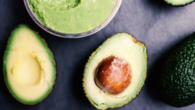
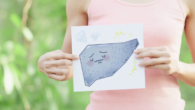


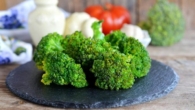
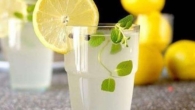


Leave a Reply